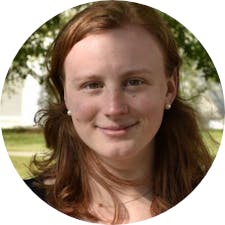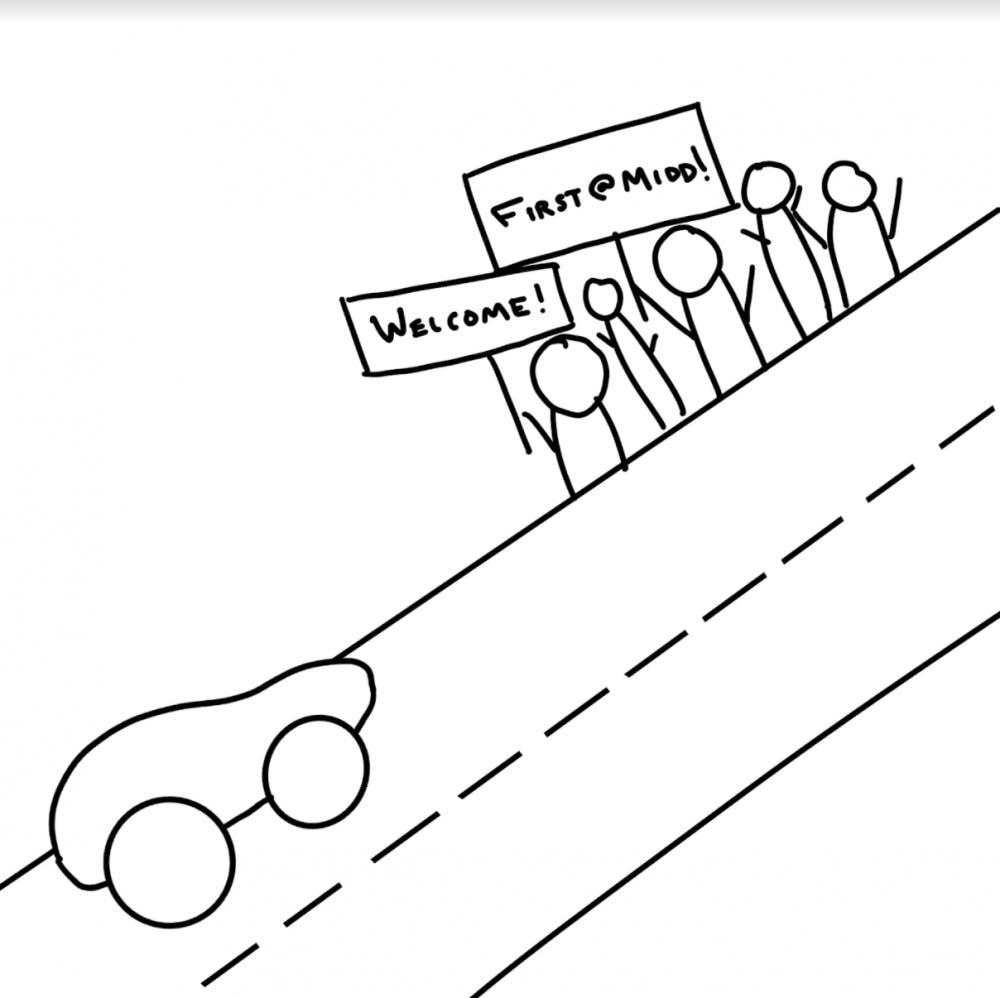After the strange and difficult 2020-2021 school year, many students are desperate to return to semi-normalcy. While returning students have some idea of what to expect, incoming first years spent their summers in eager anticipation, hoping for the classic college experience they’ve heard about for years.
But not everyone grew up hearing stories of their family members’ glory days in college. For first-generation college students, it can be a lot harder to prepare for and adjust to college life, especially at a small, private institution like Middlebury College. First@Midd strives to change that.
Long-established programs, like MiddView, were ill-equipped to prepare first-generation students for college and do not address the additional difficulties that can come with starting college without having a mentor who has been through it before.
“The program has been growing exponentially since it started six years ago,” said Sophia Wittig ’24, a First@Midd peer leader. This year the program had a record number of participants. About 120 students took part this fall, double last year’s number. Two years ago, there were only about 40 students involved.
“I was glad to see such a large group, because it doesn't make the incoming students feel so alone when they see that there are so many people here with similar upbringings or struggles,” Wittig said.
The First@Midd leaders aim to make the transition to the college easier and more welcoming for their group members. They share knowledge about preparing for college life that other incoming students might not have thought twice about, like packing lists, dorm supply suggestions and how to navigate the college’s resources. The peer leaders also emphasize to new students that other first-generation students and the Anderson Freeman Center (AFC) staff are available as a source of support throughout their time at Middlebury.
“Arguably most importantly, we also address the social implications of being first-gen here. I know in my personal experience I struggled with the adjustment of just hearing about all the trips and extra curriculars most of my classmates could and still participate in,” Wittig said. “I had to work and still do have multiple work studies, but First@Midd helped me realize that I wasn't alone in those struggles, and that I am more prepared for life after Midd.”
Wittig expressed how valuable AFC Director Derisa Collymore and Assistant Director Janae Due are to the program and its successes. “They were huge advocates for obtaining the budgeting … and recognition the program deserves and are still pushing hard to make Midd more inclusive and accessible,” said Wittig.
First@Midd has existed on grant-type funding versus yearly operating budget for the center. In the future, as the Director, I hope to discuss how that funding can be changed so it is naturally allocated in the center’s funding to make sure that First@Midd continues over the years,” said Collymore.
“It can feel like the administration here often dismisses us, but those two made it clear from day one that they are here for every single one of us and willing to help us,” Wittig said. “They are also two of the very few to say out loud that we belong here and we deserve to be here just as much as everyone else, and I think if more of the people in charge of making decisions on campus believed that, or even just said it and meant it, first-gens wouldn't feel so afraid and alone here.”
Although the program is relatively new, there are already certain activities that have become traditional to First@Midd. “Warm fuzzies” is one of the traditions that have developed. The goal is to make each other feel warm and fuzzy inside by having students write notes of appreciation to fellow group members and others of their choice.
First@Midd seeks to foster a sense of belonging for first-generation students..
“It truly does act as a support system full of amazing people and tries to fill the gaps in access and aid from the college itself,” Wittig said.

Summer Hornbostel '22 is an Arts & Culture editor.
Hornbostel started writing for the Campus last year but will now focus her energy into her new role as editor. She is majoring in English and writing a collection of poetry for her thesis this fall. In the summer of 2021, she worked as a music journalist for an online publication called The Garnette Report where she covered stories on rising musical artists.




